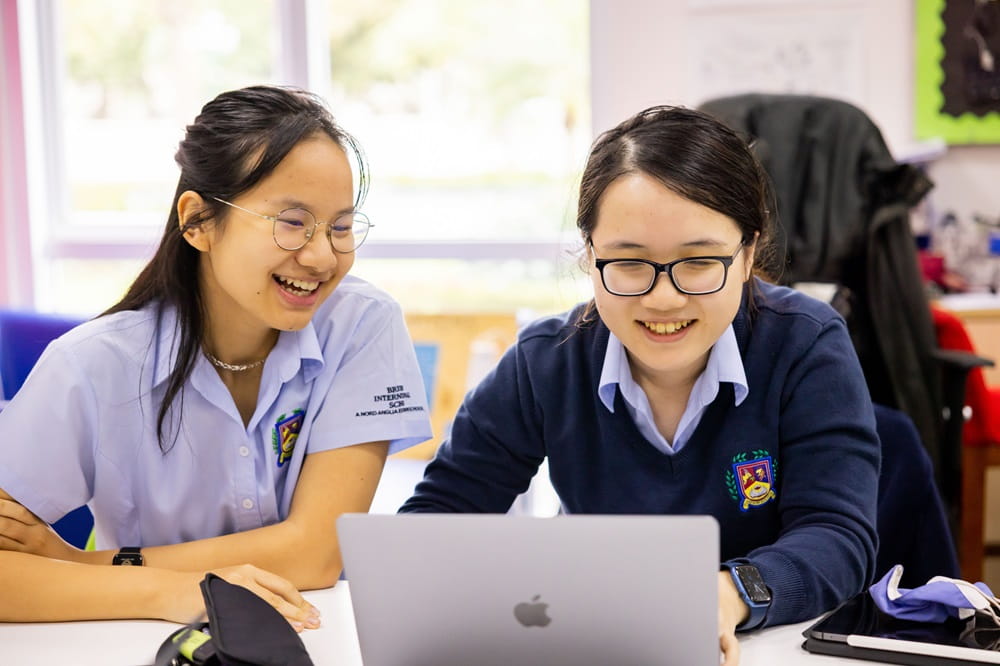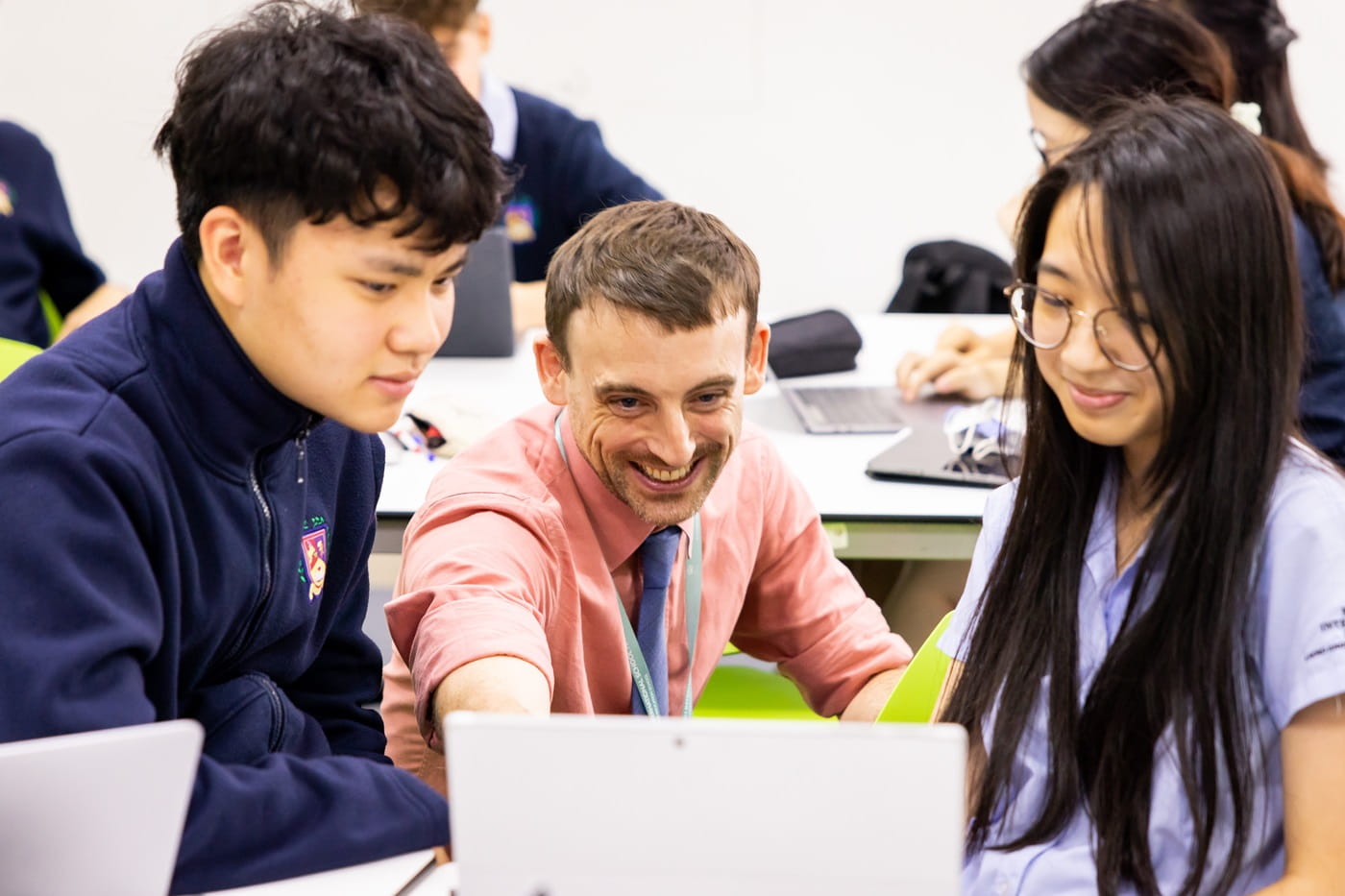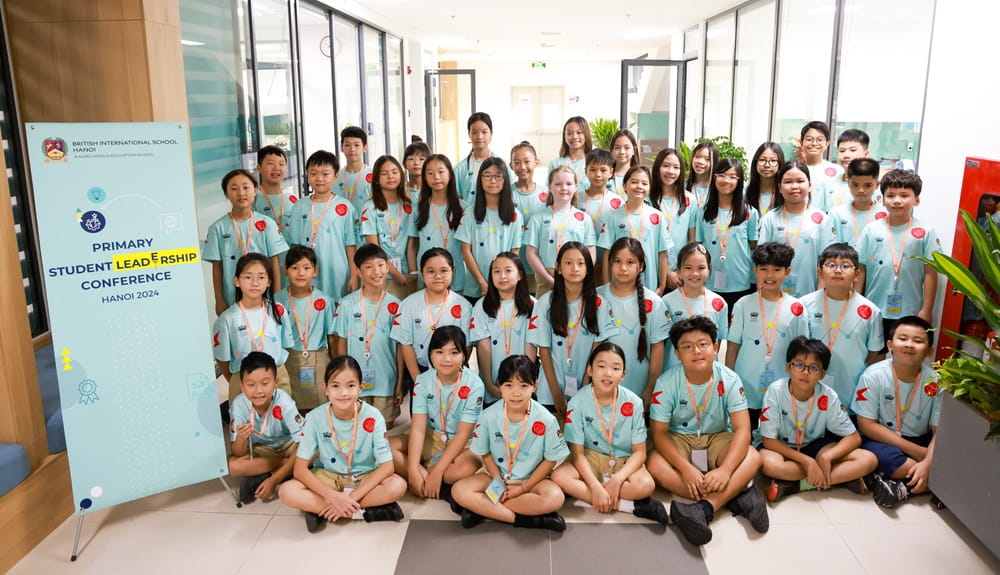The visit forms part of our re-accreditation process with these two globally recognised organisations. More importantly, it represents a pivotal stage in the continuous 5 year process of reflection, evaluation, and improvement which drives our school forward.
The evaluation team was made up of experienced educators from international schools around the world. Their expertise provided a fresh perspective and external validation of our school’s efforts to continually maintain the very highest educational standards.
What is CIS/WASC Accreditation?

The Council of International Schools (CIS) and the Western Association of Schools and Colleges (WASC) are internationally recognised accreditation bodies. They work with schools around the world to foster excellence and continuous improvement, as well as offer external evaluation to ensure that member schools demonstrate a sustained commitment to high quality education.
BIS Hanoi is proud to be accredited by both CIS and WASC. The assessment criteria requires that a school demonstrates both ‘day-to-day’ excellence in teaching, learning and well-being, as well as a clearly defined long-term vision, mission and philosophy.
CIS defines an accredited school as one that:
- Is devoted to its mission and vision for students
- Has thought deeply about the services it offers to students, family and community
- Invests the time and resources for validation from a globally-recognised accreditation authority
- Focuses on the quality of teaching, student learning, as well as student safeguarding and well-being
- Is committed to the development of the students’ global citizenship
- Has a suitable philosophy of education suitable for its students
- Promises only what it can deliver
- Is open to regular evaluation by its own school community and peer evaluators
- Constantly seeks improvement in all areas of the school plans strategically for the future
(See more on the CIS website)
How was BIS Hanoi Evaluated?

Evaluators from CIS/WASC first arrived at BIS Hanoi on Sunday 19th November, where they met the school’s senior leadership team, before enjoying a guided tour of the school with our Head Students. Over the course of the week, the evaluation team spoke with staff and students in a variety of settings.
Through lesson observations, they saw first-hand how teaching and learning takes place at BIS Hanoi. They also interviewed the wide range of teams, committees and groups who drive our school’s continuous improvement and development. Evaluators spent time discussing strategies, challenges and outcomes with the educational leadership team, Primary and Secondary assessment teams, curriculum leaders, school support staff, school counsellors, class teachers, and more.
In addition to school staff, evaluators spoke with a representative group of parents to get a rounded understanding of what it is like to be a part of the BIS Hanoi community.
Feedback from the Evaluation
At the end of their visit, evaluators held a meeting with the school senior leadership team, before addressing all members of staff in the auditorium. After spending so much time together over the course of the week, both the evaluators and school staff enjoyed the opportunity to thank one another for their efforts.
The school will receive the full evaluation report in the coming months - and we look forward to sharing the feedback with you all.
“The CIS/WASC evaluation is akin to a thorough exploration of our school practices, aligning with our commitment to continually enhance our educational programmes. This visit signifies the culmination of two years of hard work from 231 staff members, over 500 parents, and nearly 700 students – a true team effort! The feedback we've received is constructive and geared towards improving the value of our educational initiatives.” said Richard Vaughan, Principal.
How BIS Hanoi Strives for Continuous Improvement
The visit of the CIS/WASC evaluators is just one part of the CIS accreditation cycle.
While the visit of external evaluators is an important step, the accreditation process places greater emphasis on continual self-renewal and reflection. The most important part of the cycle is the ‘Self-Study’ process, which takes 12-24 months to complete and involves all key stakeholders in the school.

As part of the Self-Study process, a school evaluates its key strengths and areas of improvement, before identifying and initiating actions to address them. In advance of last week's evaluation visit, BIS Hanoi has been actively undertaking this Self-Study process for the past two years.
A key advantage of the CIS accreditation process is that it is validated externally, but driven internally. It is the responsibility of our staff and leadership teams to continually raise standards, while evaluation visits provide objective measurement of our progress and achievements. By adopting the CIS accreditation process, BIS Hanoi demonstrates a long-term commitment to continual improvement.








